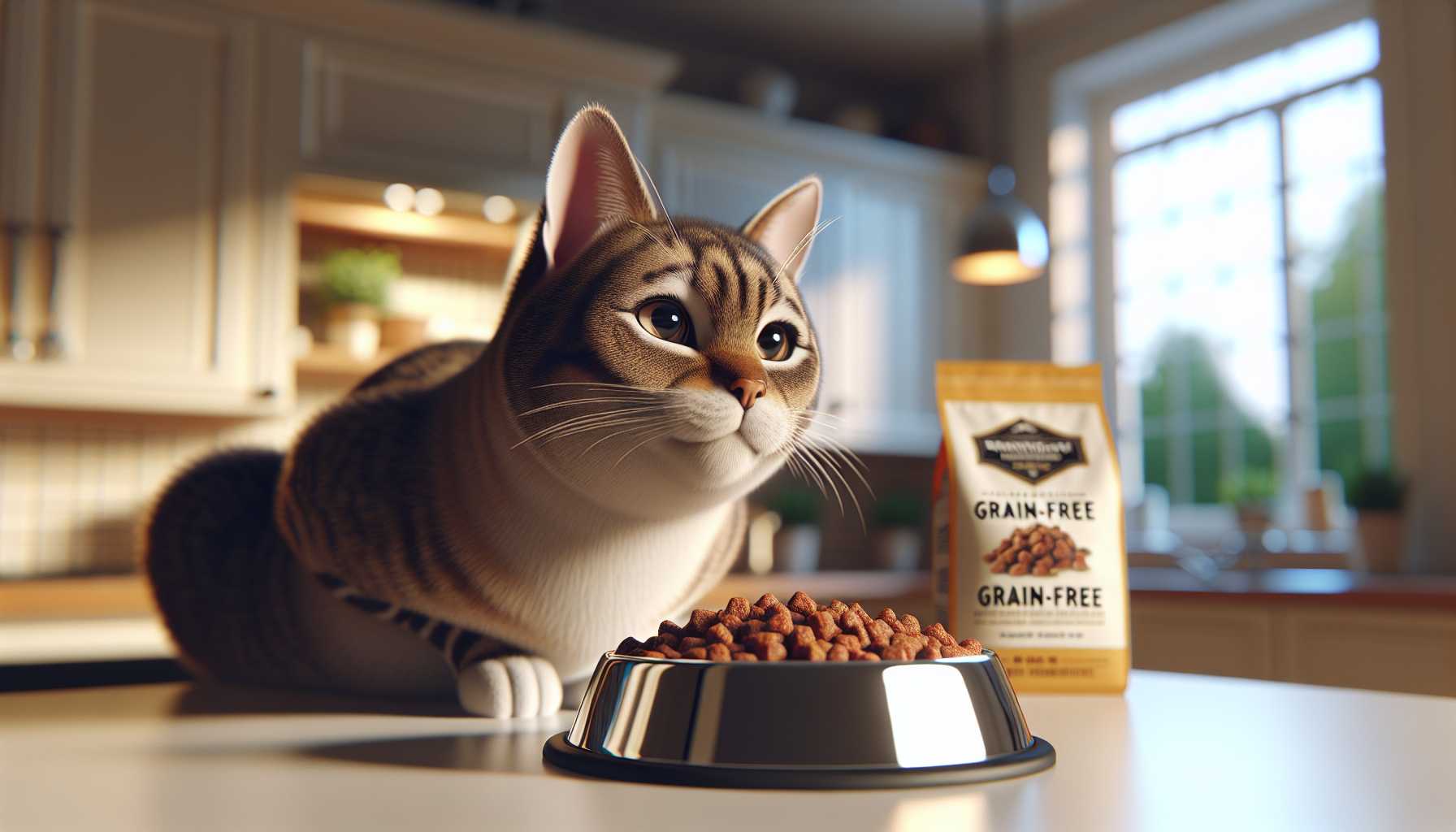Is your furry friend prone to bouts of discomfort after feeding? You’re not the only one facing this issue! Many cat owners face challenges in selecting the perfect diet for their feline friends with sensitive tummies. Here are some exceptional grain-free alternatives that could soothe your cat’s sensitive digestive system.
The Benefits of Grain-Free Cat Food
Several cats have difficulty digesting certain ingredients, much like humans. Grain-free kibble might be less taxing on your feline’s digestive system due to the following reasons:
– It emulates a cat’s inherent diet
– Contains fewer undesirable fillers
– Facilitates superior protein absorption
– Decreases potential allergic responses
Top Grain-Free Choices for Cats with a Sensitive Digestive System
1. Blue Buffalo for Sensitive Stomachs
This highly reputable brand provides a mild formula that includes:
– Real chicken as the primary ingredient
– Prebiotics for digestive wellness
– Essential vitamins and minerals
– Free from corn, wheat, or soy
2. Purina ONE Natural
This exceptional option features:
– Easily digestible turkey
– A blend of natural fibers
– Omega-6 fatty acids
– No artificial preservatives
3. Hill’s Science Diet for Sensitive Stomachs
This option often comes highly recommended by vets and includes:
– Easily digestible ingredients
– Prebiotic fiber
– Vitamin E for immune protection
– Balanced nutritional composition
Symptoms Indicating Your Cat Needs Food for Sensitive Stomachs
Here are some tell-tale signs to watch out for:
– Frequent vomiting
– Irregular bowel movements
– Excessive gas
– Diminished appetite
– Noticeable discomfort post feeding
Transitioning to a New Diet
A gradual transition to a new diet can minimize discomfort. Here’s a recommended timeline:
– Days 1-3: 25% new food, 75% old food
– Days 4-6: 50% new food, 50% old food
– Days 7-9: 75% new food, 25% old food
– Day 10 onwards: 100% new food
Tips for a Smooth Transition
- Ensure continuous access to fresh water
- Serve smaller portions more frequently
- Observe your cat’s reaction to the new diet
- Seek veterinary advice if issues persist
Financial Aspect
Although grain-free alternatives might seem more expensive initially, they can potentially save money over time by:
– Limiting veterinary visits
– Reducing portion sizes
– Enhancing overall health
– Preventing digestive complications
Final Thoughts
Identifying the ideal food for your sensitive feline may require a bit of trial and error. However, these grain-free options set you on the right course towards a happier, healthier pet. Do remember, every cat is different and what suits one may not necessarily suit another.
Your feline friend’s comfort is worth the extra effort in finding the perfect diet. Monitor their response to different diets and always confer with your vet if any concerns arise.
Have you found the perfect diet for your sensitive cat? We’d love for you to share your success story with other cat parents in the comments section.
*Always consult your veterinarian prior to making major adjustments to your cat’s diet.

